J. Peter St. Clair, DMD Blog
21 SUGGESTIONS FOR SUCCESS IN 2023
December 21, 2022
At the end of each of the past 17 years, I have used this space to publish these 21 Suggestions for Success authored by H. Jackson Brown, Jr.
Cut this out and put it on the refrigerator. Read this list often and take these suggestions to heart. The more of these you achieve, the better place you are for having your best year ever in 2023.
- Marry the right person. This one decision will determine 90% of your happiness or misery.
- Work at something you enjoy and that’s worthy of your time and talent.
- Give people more than they expect and do it cheerfully.
- Become the most positive and enthusiastic person you know.
- Be forgiving of yourself and others.
- Be generous.
- Have a grateful heart.
- Persistence, persistence, persistence.
- Discipline yourself to save money on even the most modest salary.
- Treat everyone you meet like you want to be treated.
- Commit yourself to constant improvement.
- Commit yourself to quality.
- Understand that happiness is not based on possessions, power or prestige, but on relationships with people you love and respect.
- Be loyal.
- Be honest.
- Be a self-starter.
- Be decisive even if it means you’ll sometimes be wrong.
- Stop blaming others. Take responsibility for every area of your life.
- Be loyal and courageous. When you look back on your life, you’ll regret the things you didn’t do more than the ones you did.
- Take good care of those you love.
- Don’t do anything that wouldn’t make your Mom proud.
Best wishes for a happy, successful, and healthy 2023. Happy New Year!
Dr. St. Clair maintains a private dental practice in Rowley dedicated to health-centered family dentistry. He has a special interest in treating snoring, sleep apnea and TMJ problems. If there are certain topics you would like to see written about or questions you have please email them to him at jpstclair@stclairdmd.com
DRY MOUTH?
December 13, 2022
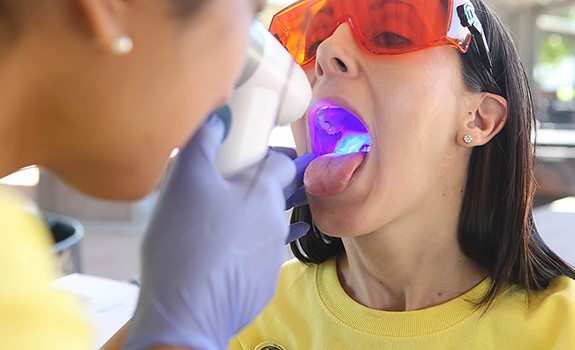
Most people take saliva for granted, but saliva is necessary for proper digestion of food. Saliva also helps protect the mouth from dental decay, gum diseases and bad breath, because it has the natural ability to stop bacterial growth. Having a dry mouth can lead to a metallic taste in the mouth and the ability to taste food properly decreases. Saliva acts as a major defense mechanism that our bodies need to maintain good oral and systemic health.
Many people don’t realize they have dry mouth, otherwise known as xerostomia, and others find it debilitating. Regardless of whether you feel the effects or not, dry mouth can be very dangerous to your dental health. The most significant issues are rampant dental decay and gum disease.
So, what can cause dry mouth? There are multiple health related conditions and habits that can cause or add to a dry mouth, dry skin and general dryness of the entire body. One cause can be medications. There are over 3,000 prescription and over-the-counter products or medications that can cause dry mouth. You can be on a medication for years before the side effects show up. Dry mouth side effects can also last for a long time after you stop taking a medication.
What else can contribute to dry mouth? Here is a list: hypothyroidism, rheumatoid arthritis, lupus, anemia, Sjogren’s Syndrome, chemo therapy, alcohol consumption, ineffective salivary glands, stress, Alzheimer’s Disease, Parkinson’s Disease, diabetes, allergies, vitamin deficiencies, hypertension, radiation therapy, menopause, depression, smoking, and last but not least, aging.
How do you know if you suffer from, or are at risk for dry mouth? Here are some questions to assess your risk: Has your physician or pharmacist shared with you that a medication you are taking can cause dry mouth? Do you find that you wake up in the middle of the night with a cough or have a choking feeling and need a drink of water? We produce at least 50% less saliva at night so the side effects are more intense.
Does your tongue feel rough or do you tend to get mouth sores? Does your tongue stick to the roof of your mouth? Do crunchy foods such as potato chips or crackers “scratch” your mouth? Do you have dry, cracked lips and cracks at the corners of your mouth? Do you have thick and sticky saliva? Are your eyes dry and eyes drops are relatively ineffective? Is your skin still dry after using moisturizing lotion?
If you have a positive response to any of these questions, you are at risk from the damaging effects of dry mouth. The first thing to do is to eliminate any of the things that I mentioned as potential causes that are in your control, such as alcohol consumption and tobacco use. I also recommend that patients stay away from alcohol-based mouth rinses, tartar control and whitening toothpastes.
You should also notify your physician and dentist that you have, or are at risk for, dry mouth. There are many products on the market that can be effective to help with the symptoms, and also help to protect your teeth and gums. In addition, there are other prescription products, such as high-fluoride toothpastes and anti-oxidant hydrating toothpastes, mouthwashes and gels that you can only get from your dentist or physician.
Please take dry mouth seriously. The effects aren’t only annoying, but can also ruin your mouth.
Dr. St. Clair maintains a private dental practice in Rowley dedicated to health-centered family dentistry. He has a special interest in treating snoring, sleep apnea and TMJ problems. If there are certain topics you would like to see written about or questions you have please email them to him at jpstclair@stclairdmd.com
WHO’S YOUR DENTIST?
December 5, 2022
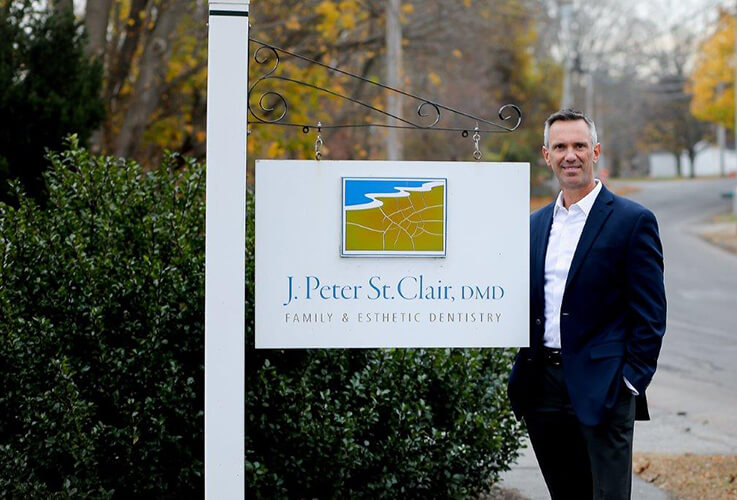 We all have people we look up to, whether in our personal or professional life. One of those people in my professional life is the late Dr. LD Pankey. Dr. Pankey was a true visionary. There is an advanced dental education institute named after him in Florida, where dentists learn from his influential teachings.
We all have people we look up to, whether in our personal or professional life. One of those people in my professional life is the late Dr. LD Pankey. Dr. Pankey was a true visionary. There is an advanced dental education institute named after him in Florida, where dentists learn from his influential teachings.
I recently read an article he wrote in 1981, 8 years before his death. It is interesting to read some of the things he wrote, because it shows how little things have changed, and how well he understood people and his profession. I would like to share a few paragraphs from this piece:
“Another important element, then, in the future of dentistry is determining the answer to the question: why don’t more people with needs go to the dentist? In-depth studies on consumer attitudes have turned up a host of reasons, but one surpasses all the rest. Most people who fail to seek dental care fail because they don’t perceive their need. More astounding than that is the fact that the majority of people who do go to the dentist don’t perceive the need either!
If the public is ever to be enlightened about the importance of dental health, who will have to do the enlightening? I’ve never found anyone else I could depend on to do it. I had to build the one-to-one relationships with my patients that were needed to make my practice- and thus the future of dentistry- prosper and grow.
People with dental needs are out there, all right, but even when they do perceive their need, they must be assured there’s someone available who will identify with what they’re feeling and devote themselves to helping them to be healthy, happy and whole.”
Dr. Pankey asks who will enlighten the public about how good dental health is better for your overall health? His answer is the same today as it was when this piece was written. The dentist (and dental team), who is dedicated to taking the time to listen and build a relationship with the patient, is the only one who has the best interest of the patient.
The insurance industry is trying to turn dentistry into a commodity, where a “cleaning”, a filling, a crown, or a denture is the same anywhere. It’s just “stuff” that’s done to fix problems. The insurance company’s main interest is profitability – period. Does it make sense that an insurance company should be able dictate who you can see as a provider?
The business of dentistry has reacted to these things as well. One example are the commercials on TV for a corporate dental facility that only does dental implants. The ads target the large sector of the population who think removal of teeth and replacement with dental implants fixes them for life. This is far from the truth. While there are patients who truly benefit from these types of procedures, many others have healthy teeth removed because it seems like the easier thing to do.
You have to be the one to decide how important your health is. In 1981 there were no connections between oral health and systemic health. Today we know that a healthy mouth is so important to a healthy body. If your health is a priority, you should seek regular dental care with a professional team who has your best interest at heart.
Dr. St. Clair maintains a private dental practice in Rowley and Newburyport dedicated to health-centered family dentistry. He has a special interest in treating snoring, sleep apnea and TMJ problems. If there are certain topics you would like to see written about or questions you have please email them to him at jpstclair@stclairdmd.com
GO ELECTRIC
November 28, 2022
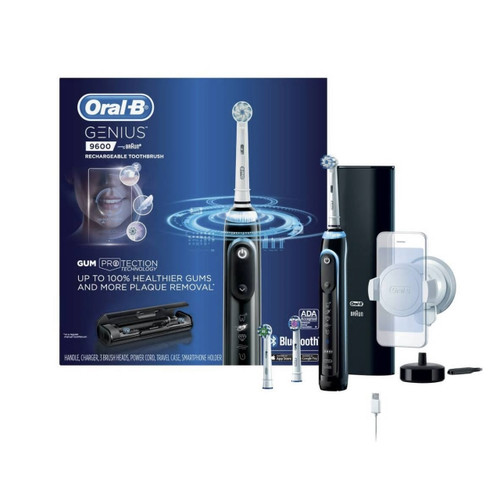 Like many dental practices today, our office sends an email request for patients to leave comments about their visit to our office. Most comments are positive, for which we are grateful. However, all comments are helpful to the business to understand what patients are thinking. If one person is thinking it, most likely there are others.
Like many dental practices today, our office sends an email request for patients to leave comments about their visit to our office. Most comments are positive, for which we are grateful. However, all comments are helpful to the business to understand what patients are thinking. If one person is thinking it, most likely there are others.
We received the following comment on our website from a patient who was in to see one of our hygienists:
“My hygienist is always very pleasant, conversational and professional in her services. However, I can do without the constant sales pitch to buy an electric toothbrush from your office. There is no evidence that an electric is any better than a good, manual 2-minute brush, and I don’t have any arthritis or dexterity issues.”
I really appreciate feedback from patients like this. Your own dental office would too. In my response to the patient, I explained that I didn’t like the fact that the patient had the feeling he was trying to be sold something. For the patient to feel that the only benefit was monetary to our office means the communication was inadequate. Most dental offices are not selling electric toothbrushes to make money.
We keep our preference of electric toothbrushes in stock for convenience and cost savings for the patient. The shared benefit for the dentist and the patient is improved health. We want our patients to have healthier gums and less cavities.
Back in the beginning of my professional career, I was an advocate of the manual toothbrush. I was convinced that anyone could get the same results with a manual toothbrush, compared with any electric/power toothbrush. It wasn’t until I actually tried a power toothbrush, and stuck with it, that I was convinced there was a distinct difference.
It is now common practice for us, and likely most dental practices, to ask patients if they use a manual toothbrush or an electric toothbrush. When we ask this question, we have also found that it is just as important to ask what kind of power toothbrush is used. One that sits in a charger is far more effective than one that you put batteries in, though it does cost more.
There have been numerous studies that have compared the effectiveness of both rotating and sonic power toothbrushes. In one study, 131 individuals were split into two groups – oscillating/rotating vs sonic power srushes. Prior to the study, 63% and 58% were manual toothbrush users, respectively. Each participant brushed twice daily during a four-week period using their assigned powered toothbrush and a standard toothpaste.
Researchers graded effectiveness of their plaque removal using a specific plaque-grading index. While both groups showed significant improvement when compared to manual brushing, the oscillating/rotating brush was better. 97% of the oscillating/rotating group saw a reduction in whole-mouth plaque, compared with 64% of the sonic participants.
“The current study demonstrated superior plaque reductions with an advanced oscillating/rotating power brush compared to a novel sonic brush, corroborating previous studies demonstrating the superiority of oscillating-rotating power brushes relative to sonic brushes,” the researchers concluded.
While using a manual toothbrush can be effective, it is clear based on this study and others, that a good quality power toothbrush is better. It’s time to change if you still use a manual brush.
Please email me if you would like a recommendation; these make great presents!
Dr. St. Clair maintains a private dental practice in Rowley and Newburyport dedicated to health-centered family dentistry. If there are certain topics you would like to see written about or questions you have please email them to him at jpstclair@stclairdmd.com. You can view all previously written columns at www.jpeterstclairdentistry.com/blog.
Off-Track with Your Invisalign Treatment? Here Are 4 Tips to Help!
November 23, 2022
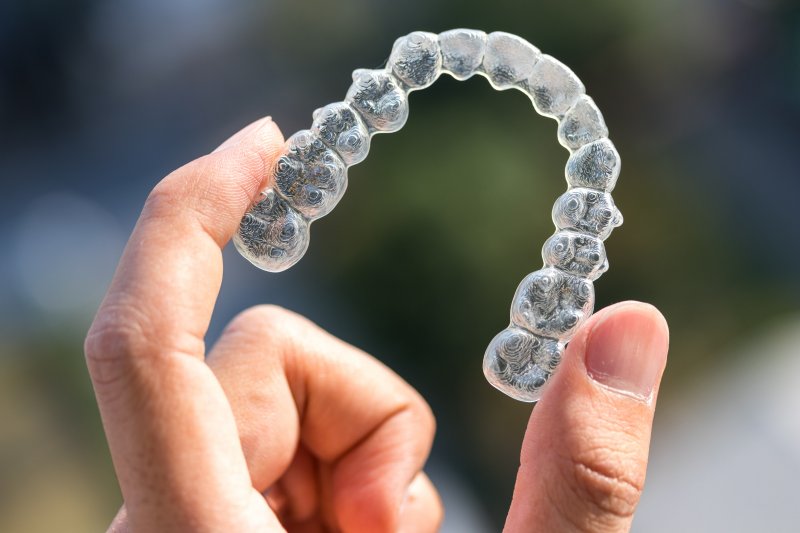
Getting a straighter smile became incredibly convenient of Invisalign in the late 1990s. The innovative clear aligners provided people of all ages a way to effectively correct misaligned teeth with virtually undetectable treatment! It has now helped over 5 million people get the smile of their dreams. However, those perfected pearly whites can be delayed if you get off course from your Invisalign treatment plan. Here are four tips to help you get back on track.
THE FINAL PUSH!
November 21, 2022

November is almost over! It’s crunch time to get everything done that we haven’t gotten done during the rest of the year. For those with remaining dental benefits, it’s also the time of year to consider utilizing those so you don’t lose them.
Unused dental benefits go directly back to the insurance company, which generates hundreds and hundreds of thousands of dollars for the insurance companies each year. Dental insurance companies count on the fact that many people will not claim their $1000 or so in benefits by the end of the calendar year. Those with dental benefits should look for legitimate means to use these benefits before they are lost.
For example, perhaps a crown has been recommended by your dentist, but you have procrastinated about it. It would make sense to consider using those dental benefits before the end of the calendar year. This allows a whole new round of dental benefits to be used for unexpected dental needs the following year, and maximizes the value of the premiums paid.
Remember, insurance companies are in the business to make money. They don’t want you to use your dental benefits. If the balance (co-payment) you will owe for the dental work that needs to be done is too much for you, consider financing options through your dental office. Most dental offices offer interest-free financing to patients for up to 12 months. Financing your balance in this way may make more financial sense than throwing money away to fund the insurance company’s pocketbooks.
Another thing to consider as the end of the year approaches is the use of flex spending accounts. Many employers now offer pre-tax flex spending accounts for healthcare expenses. Often underutilized, these are excellent mechanisms for saving about 20 percent on needed dental care. If you are paying for your dental insurance premiums, it may even make sense to fund an available flex spending account with that premium money instead of, or in conjunction with it.
For instance, if you are anticipating the need for $3000 in dental care, opting to place the $3000 in a flex spending account can save the income tax on those monies and can usually be used as soon as January 1st. If you have money left in a flex spending account, remember to check with your employer to determine if that money needs to be used by the end of the year. You don’t want to lose that money either.
As you begin to make financial decisions for the end of this year and for the upcoming year, consider a discussion with your dental office’s financial person. They are often an untapped wealth of information and can usually thoroughly and knowledgeably discuss your dental financial options with you.
And, don’t wait too long. Dental office schedules get full quickly this time of year with patients trying to use dental insurance benefits and unused flex account money. Maximize your hard-earned dollars.
Dr. St. Clair maintains a private dental practice in Rowley and Newburyport dedicated to health-centered family dentistry. If there are certain topics you would like to see written about or questions you have please email them to him at jpstclair@stclairdmd.com. You can view all previously written columns at www.jpeterstclairdentistry.com/blog.
DIABETES & DENTISTRY – PART 2
November 14, 2022
 Last week I discussed the role and effect that diabetes has on oral health. It is not something that should be taken lightly. If you missed this column, please visit the website at the end of this column or e-mail me directly and I will send you a copy.
Last week I discussed the role and effect that diabetes has on oral health. It is not something that should be taken lightly. If you missed this column, please visit the website at the end of this column or e-mail me directly and I will send you a copy.
After reading last week’s column, it may seem frightening that there is no way out of the partnership of horrors between diabetes and severe gum disease. There are solutions. Just as poor oral health can compound a diabetic’s situation, proper oral health can come to the rescue.
Clinical studies confirm that treatment of gum disease reduces oral inflammation, which removes the factor that triggers the body’s inflammatory response which, in turn, plays a major role in compounding the effects of diabetes. Dental treatments that fight gum infections also help improve control of blood sugar levels in diabetics.
If you are pre-diabetic, your dentist may actually be able to help prevent diabetes. If you already have diabetes, your dentist may be able to help you keep it under control, improve your quality of life, and reduce the risk of premature death.
There’s even better news. It’s never too late to improve oral health care. Even if you already have severe gum disease or other dental problems, proper treatment can help stop it in its tracks. In many cases, dentists can even reverse the damage done to your teeth and gums as well as manage the metabolic elements of diabetes. And, if you haven’t yet developed any symptoms of diabetes-related oral health problems, your dentist can start a prevention program that will help you stay in control of your diabetes, maintain better health and enjoy a preferred quality of life.
Perhaps the best news is that this is something that doesn’t require exercise, taking a pill, giving yourself a shot of insulin, or sticking to a special diet. However, some or all of these things may be necessary to also help control diabetes. From an oral health perspective all you need to do is to start seeing your dentist and talking to him or her about your particular situation.
When it comes to partnering with you to manage the oral health issues in regards to diabetes or pre-diabetes, there are going to be varying degrees of participation from dentists, depending on their knowledge or “philosophy” of care. The best team approach is between the doctor, the patient and the dentist. If one of these team members does not participate, the battle cannot be won. Often times, it is the patient who is not doing the things that he or she needs to do to properly manage the problem. If the dentist does not seem too concerned about your diabetes and you have the desire to have your oral health properly managed and are willing to do your part, find a new dentist.
The point is that this is a serious issue and if you, the patient, wants to take control of it, a team effort is needed. Find the right team. Make a commitment to improve your health and quality of life. You can do this.
Dr. St. Clair maintains a private dental practice in Rowley and Newburyport dedicated to health-centered family dentistry. If there are certain topics you would like to see written about or questions you have please email them to him at jpstclair@stclairdmd.com. You can view all previously written columns at www.jpeterstclairdentistry.com/blog.
DIABETES & DENTISTRY – PART 1
November 7, 2022
 After the election, and the dust has settled, I will report back on what the results of Question 2 will mean for you.
After the election, and the dust has settled, I will report back on what the results of Question 2 will mean for you.
With more than 24 million diabetics and 57 million pre-diabetics in the United States, nearly a quarter of the nation’s population, the connections between dental health and diabetes have never been more critical.
As an indication of our general health, the rapidly rising rate of diabetes should be ringing alarm bells everywhere. The litany of health implications from diabetes is a long and grisly list. It is the sixth leading cause of death in the U.S. That is probably vastly understated, because as many as 65% of deaths from diabetes are attributed to heart attack and stroke. People with diabetes have about twice the overall risk of death as those who don’t have the disease.
Complications from diabetes can cut years off productive lives and interfere with the quality of those lives through a host of debilitating health effects. Heart disease and stroke rates are as much as four times higher among diabetics. Nearly three-quarters of diabetics have high blood pressure. Each year, diabetes causes blindness in as many as 24,000 Americans. It is the leading cause of kidney failure, nervous system disease, amputations – the list goes on.
This isn’t meant to be a scare tactic. These are simply the facts and, yes, they are sobering. But if you have diabetes or are pre-diabetic, you may want to brace yourself, because we are going to talk straight about oral health and diabetes, two diseases that can twist each other into a tight downward spiral of amplifying negative health effects. Unless they are halted by your physician and your dentist working in tandem as a health care team, together with your commitment to hold up your end of the bargain, these effects can continue to compound.
The facts about the connections between oral health and diabetes are even more alarming than those about diabetes alone. Here are just a few:
Diabetics are twice as likely to develop gum disease. This is especially true if your diabetes is not under control. The gum disease then worsens your diabetes through an automatic response that your body uses to fight the infection.
People with gum disease are 270% more likely to suffer a heart attack than those with healthy gums.
People who have diabetes and severe gum disease have a premature death rate nearly eight times higher than those who do not have periodontal disease.
Those who have gum disease and diabetes together are more than three time likely to die of combined heart and kidney failure.
In people who have type 2 diabetes, gum disease is a predictor of end-stage kidney disease.
In people who have pre-diabetes – blood glucose levels that are higher than normal but not in the diabetic range – gum disease makes it more likely that they will become diabetic.
Once established in a person who has diabetes, the chronic infection that causes gum disease makes it more difficult to control diabetes, and increases damage and complications in blood vessel disease.
We will continue this discussion next week and talk about some things you can do to help this problem.
Dr. St. Clair maintains a private dental practice in Rowley and Newburyport dedicated to health-centered family dentistry. If there are certain topics you would like to see written about or questions you have please email them to him at jpstclair@stclairdmd.com. You can view all previously written columns at www.jpeterstclairdentistry.com/blog.
BALLOT QUESTION 2 – PART 2
October 17, 2022
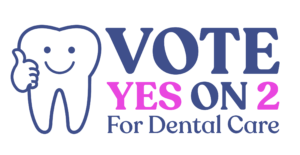 If you did not catch Part 1 of this column last week, you can read it at www.towncommonmedia.com.
If you did not catch Part 1 of this column last week, you can read it at www.towncommonmedia.com.
As I explained last week, dental insurance is not really insurance. All plans available are dental benefit plans, intended to cover basic services. True insurance covers loss and damage. Dental insurance was set up like this in the 1970’s and has not changed. While premiums have increased, the percentage paid out by these companies has decreased significantly. Ballot Question 2 does not change the general structure of dental plans, unfortunately, but takes aim at the amount of money companies collect vs. the amount they pay out for direct patient care.
Taken directly from the Mass.gov website:
“This proposed law would direct the Commissioner of the Massachusetts Division of Insurance to approve or disapprove the rates of dental benefit plans and would require that a dental insurance carrier meet an annual aggregate medical loss ratio for its covered dental benefit plans of 83 percent. The medical loss ratio would measure the amount of premium dollars a dental insurance carrier spends on its members’ dental expenses and quality improvements, as opposed to administrative expenses. If a carrier’s annual aggregate medical loss ratio is less than 83 percent, the carrier would be required to refund the excess premiums to its covered individuals and groups. The proposed law would allow the Commissioner to waive or adjust the refunds only if it is determined that issuing refunds would result in financial impairment for the carrier.”
Those in favor of this law say:
“A YES vote expands consumer protection laws that already exist for medical insurance companies to dental insurance companies.
A YES vote ensures better coverage and value for patients, instead of unreasonable corporate waste.
For example, according to its own 2019 Form 990, (the major dental insurance carrier in Massachusetts alone) paid executive bonuses, commissions, and payments to affiliates of $382 million, while only paying $177 million for patient care.
A YES vote would eliminate this inequity. Similar to medical insurance, this law would require dental insurance companies to allocate at least 83% of paid premiums to patient care, or refund premiums to patients to meet this standard.
Insurance companies will try to confuse voters by saying that dental insurance premiums will increase. This is false, because Section 2(d) of the law specifically disallows increases above the consumer price index without state approval.”
Those against this law will say that premiums will increase 38%. Well, that was debunked in the statement above. They will also say, “There is no law like this ballot question anywhere in the nation.” That is the point – Disruption of the current inefficient and unfair system. While this law will not fix the system completely, it will wake the rest of the country up to the inequality.
Vote YES on Question 2.
Dr. St. Clair maintains a private dental practice in Rowley and Newburyport dedicated to health-centered family dentistry. He has a special interest in treating sleep apnea and TMJ problems. If there are certain topics you would like to see written about or questions you have please email them to him at jpstclair@stclairdmd.com
BALLOT QUESTION 2 – PART 1
October 11, 2022
 As a general rule, the team at my office is discouraged from using the word “insurance”, because dental insurance is not really insurance. They are dental benefits. True insurance covers loss and damage.
As a general rule, the team at my office is discouraged from using the word “insurance”, because dental insurance is not really insurance. They are dental benefits. True insurance covers loss and damage.
I offer medical insurance to my team as all small businesses do in Massachusetts. A family plan in my office costs $2600 per month. A single person is $900 per month. That includes a $2000 deductible per person as well. Said a different way, $33,200 or $12,800 respectively, is paid out by the patient before the insurance company pays towards anything. When I was growing up, this was called catastrophic insurance; you weren’t covered for the minor stuff, but if you needed anything else, there was insurance coverage.
Dental “insurance” on the other hand, is the complete opposite. Dental benefit plans are meant to cover (or at least partially cover) the minor stuff, but there are no benefits for significant need. In my experience, for an individual looking to get dental benefits on their own, it costs around $700 per year. That gets you an average of $1000-1500 of coverage for the year. THAT is not insurance. Dental benefits are meant to cover the basics of dental care, not the catastrophic issues. That’s the difference between medical insurance and dental benefits.
You may ask, how do insurance companies make any money on this model? They accomplish this in two main ways. The first is that they rely on a significant number of patients not using their benefits. The last statistic I have seen shows that about 50% of the population, regardless of whether they have dental benefits or not, do not visit a dentist at least once per year.
The other way insurance companies make money is to deny or not cover many services. While it may make sense that there is no coverage for services that are purely cosmetic, it makes absolutely zero sense that preventative services such as nightguards or occlusal orthotics (that a significant number of patients really need to control and prevent many issues), are rarely covered. These companies look for every way possible to not pay or delay payment. Ballot Question 2 is asking, Is the percentage of what the insurance company is taking in vs. what they pay out towards patient care, in the best interest of patient care? I’ll come back to that.
All dental offices hear the same things from patients with “insurance” such as, “Is that covered by my insurance?” or “I haven’t been to the dentist in X years because I haven’t had insurance.” Some may say, “Well, dentistry is expensive.” Dentistry can be costly if extensive dental work is needed. For that same $700 per year for individual insurance, you could skip the dental plan and spend 100% of your dollars to see ANY dentist you want twice per year to have your teeth cleaned, x-rayed, and an exam to check for decay, gum disease, joint health and cancer. While this is not what Question 2 is about, it is something to keep in mind. Preventative dental care (excellent home care and routine professional care) is the key to helping prevent the need for more expensive, extensive dentistry.
The way the system is set up now really hasn’t changed since the early 1970’s. That same $1000-1500 benefit existed then, meanwhile everything else has gone way up.
I will continue this column next week to discuss how a YES vote on Ballot Question 2 has the potential to initiate a disruption in the dental insurance industry, in the best interest of patient care. While it isn’t a total solution to the poor system in place, it will hold insurance companies much more accountable for where premium money is spent.
Dr. St. Clair maintains a private dental practice in Rowley and Newburyport dedicated to health-centered family dentistry. He has a special interest in treating sleep apnea and TMJ problems. If there are certain topics you would like to see written about or questions you have please email them to him at jpstclair@stclairdmd.com







